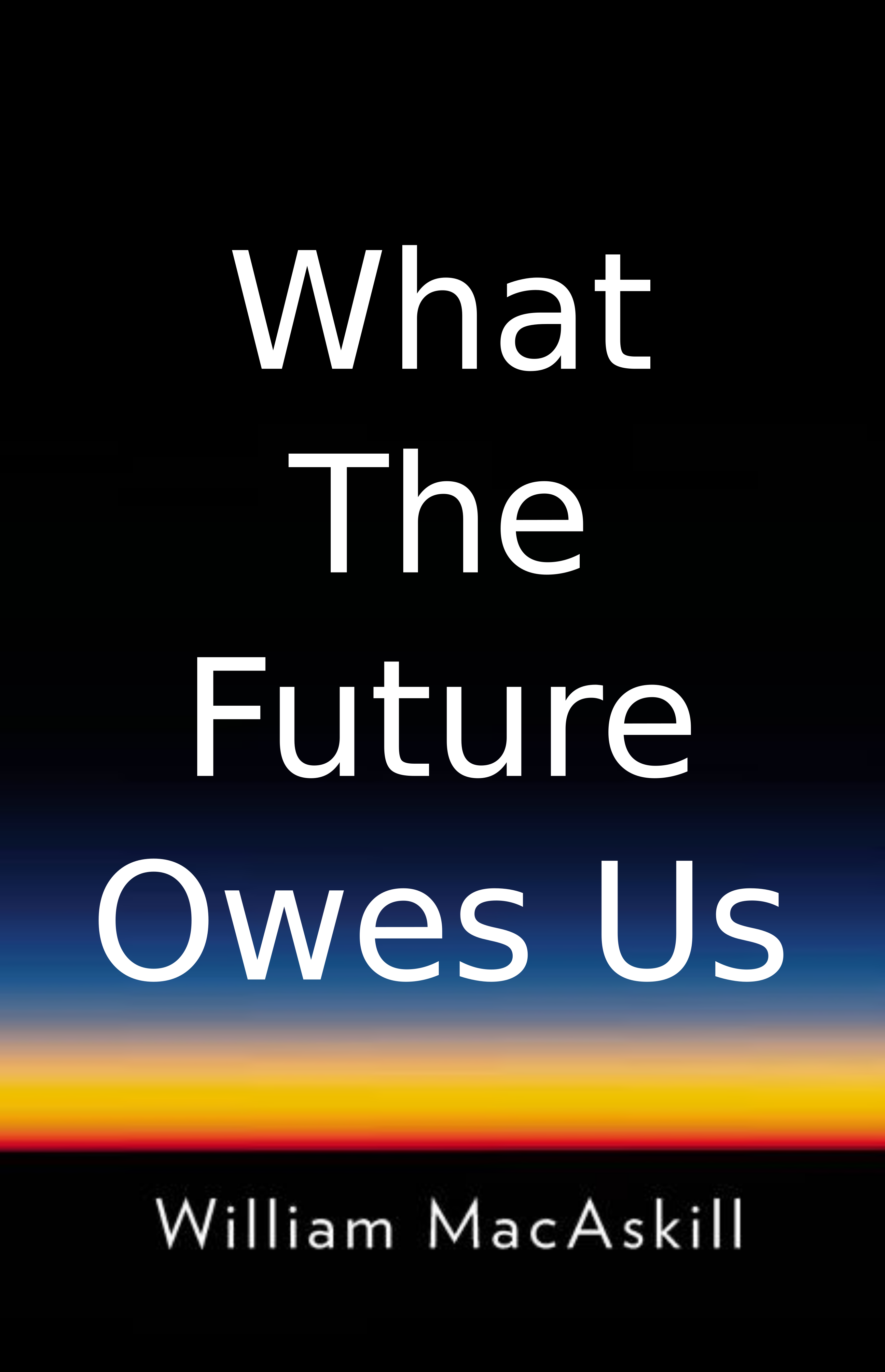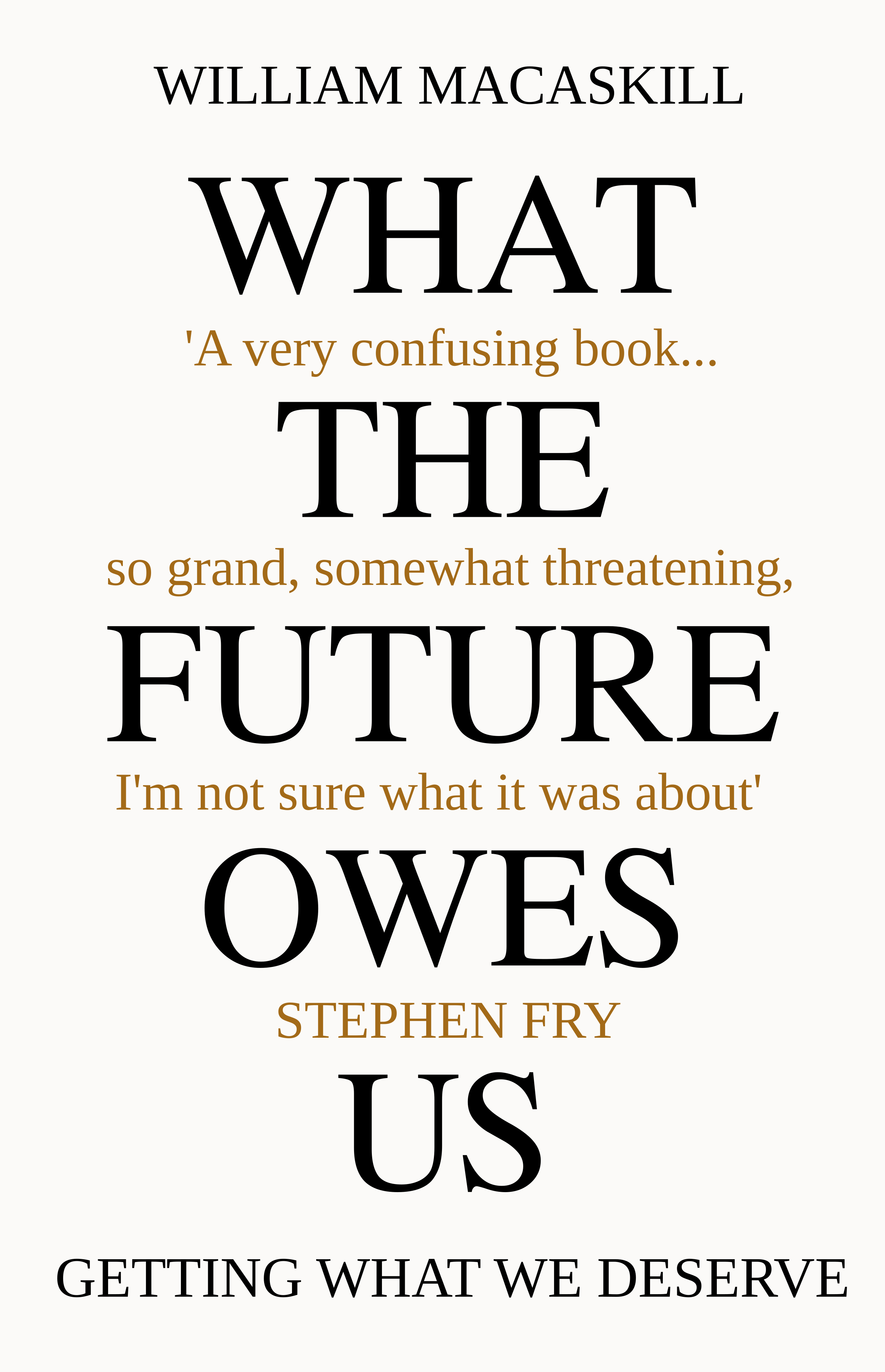I am excited to announce the sequel to the recently announced book What We Owe The Future. This new book will be called What The Future Owes Us, and will focus primarily on the common criticism “why should I do anything for the future if they won’t do anything for me?”
The first half of the book dives into ways in which the future can do things for us. Sometimes this is in straightforward ways, such as carrying forward our values and continuing our legacies. But it will be argued that there are much more impactful and direct ways the future can do things for us via acausal trade and via the future’s acausal influence over the past (our present). Due to the vast number of potential people in the future, we expect that they will be able to exert a large amount of acausal control over the past (the specifics of this argument will be fleshed out by the future author).
The second half of the book looks at ways we can ensure the future acts in the best interest of the past, just as we have acted in the best interests of them. We will investigate commitment devices, and novel metaphysics which may allow this to be possible. Ultimately it will be argued that we in the present can control the future, which can in turn have a positive impact on us today.
Hopefully, this book will bring more moral egoists to longtermism, because the best way to help oneself may be to help the future.
The book is not up for preorder yet, but we do have cover designs.






The future's ability to affect the past is truly a crucial consideration for those with high discount rates. You may doubt whether such acausal effects are possible, but in expectation, on e.g. an ultra-neartermist view, even a 10^-100 probability that it works is enough, since anything that happened 100 years ago is >>10^1000 times as important as today is, with an 80%/day discount rate.
Indeed, if we take the MEC approach to moral uncertainty, we can see that this possibility of ultra-neartermism + past influence will dominate our actions for any reasonable credences. Perhaps the future can contain 10^40 lives, but that pales in comparison to the >>10^1000 multiplier we can get by potentially influencing the past.